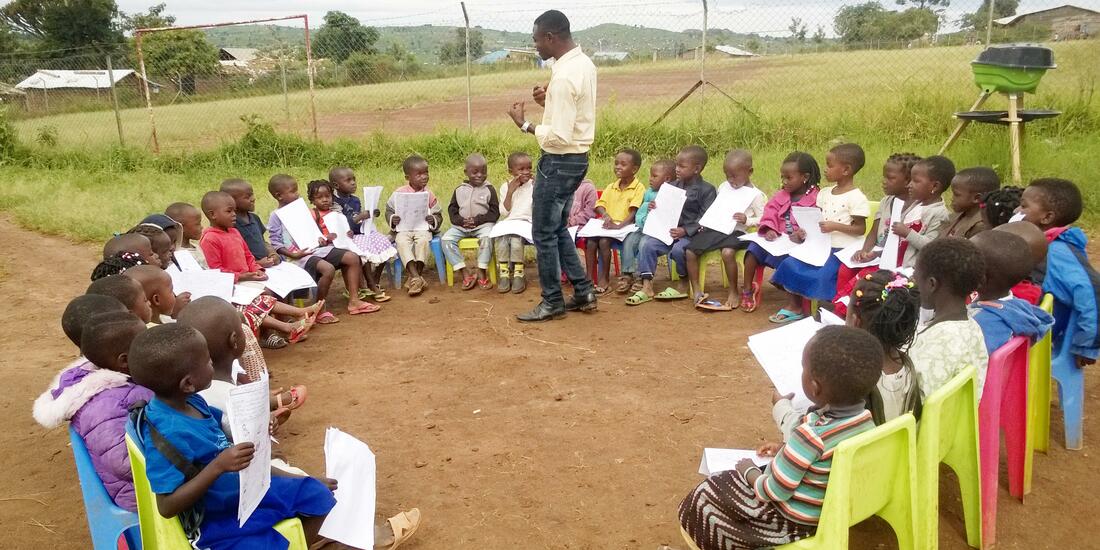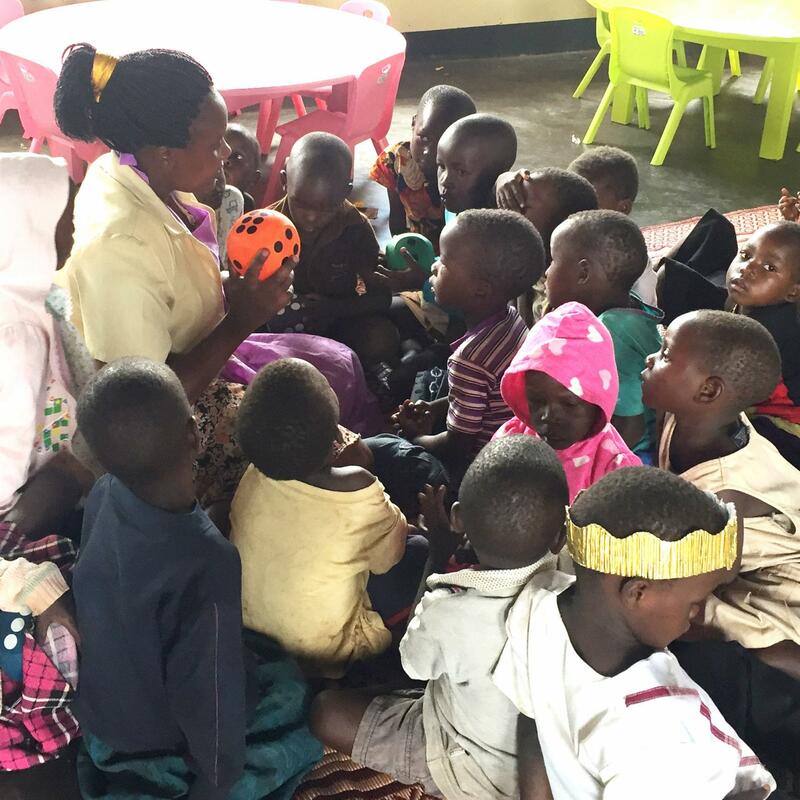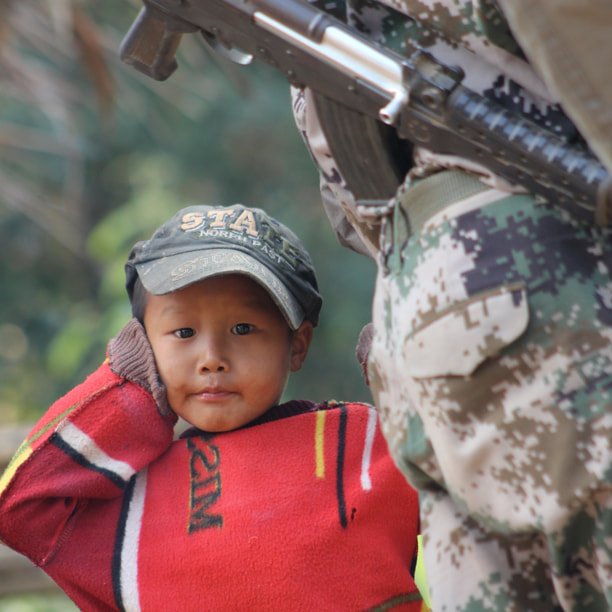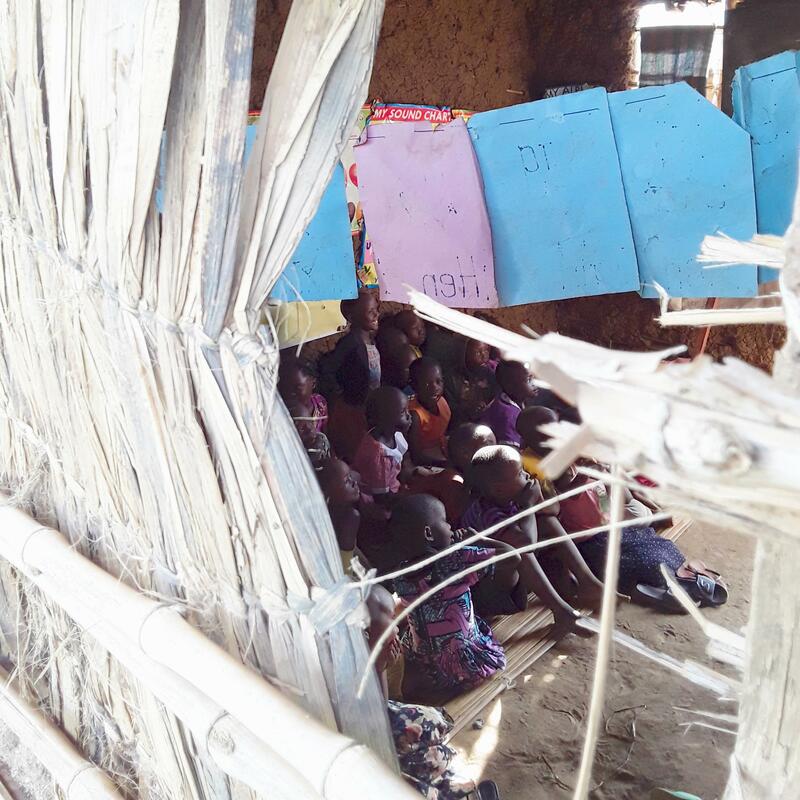1. Pre-school years are essential for a child’s development
2. They are even more critical for refugee or displaced children
A lack of intervention for children at this young age is likely to result in negative consequences for the global community. There is evidence that young people from refugee communities face psychological distress, low performance in school, and issues with social and cultural integration [vii]. These kinds of consequences can be tempered or prevented with Early Childhood Development (ECD) input [viii], and as these interventions have been proven to be not only effective, but cost-effective [ix], returns can be on average 4 to 5 times the amount invested. They are a solid investment for the future of our children as individuals, and our society at large, as when they reach adulthood they have higher employment and income levels, better health, and lower levels of welfare dependence and crime rates than those who don’t have ECD input. Early childhood provision also acts as an effective protection mechanism. Centres ensure not just protection from bodily harm, but the protection of developing brains and personalities. Loving, caring and child friendly environments create a protective buffer enabling children in conflict to thrive. 3. There is a lack of ECD provision for refugee and displaced children
[i]Lake, Anthony (2016) ‘Applying the Science: How what we are learning about brain development should shape policies, practical action, and public advocacy,’ in Early Childhood Matters: Advances in early childhood development, Bernhard van Leer Foundation, no. 125, The Hague,, p. 13
[ii] 2000 - Development of strong ECD component in East Timor Child Friendly Space, 2002 - Early years special educational needs programme in Romania, 2007- Nurseries in Ei Htu Htu camp displacement camp, Myanmar, 2013 - ECD for displaced Kachin children, Myanmar, 2016 - ECD Centres, Jinja Uganda, 2019 - ECD development in Kyaka II refugee camp, Uganda. [iii] UNICEF (2017) ‘Early Moments Matter for Every Child’- 3 United Nations Plaza, New York [iv] Linda M. Richter, Distinguished Research Fellow at the Human Sciences Research Council, University of Witwatersrand in South Africa (UNICEF Early Moments Matter) [v] UNESCO (2018) ‘Global Education Monitoring Report 2019: Migration, Displacement and Education – Building Bridges, not Walls’. Paris, UNESCO. [vi]Ibid [vii] Selcuk Sirin, S & Rogers-Sirin, L., (2015) ‘The Educational and Mental Health Needs of Syrian Refugee Children’, Migration Policy Institute. [viii] Pacione, L, Measham, T & Rousseau, C, (2013) ‘Refugee Children: Mental Health and Effective Interventions’, Current Psychiatry Reports, 15: 341-344. [ix] UNICEF (2017) ‘Early Moments Matter for Every Child’- 3 United Nations Plaza, New York On average, the plans included one in six of the recommended elements of an early learning component. Nearly half made no mention of learning or education for children under 5, and less than one-third specifically mentioned pre-primary education or ECEC. Support usComments are closed.
|
RECEIVE OUR EMAILSBlog Categories
All
Archives
March 2024
|
|
JOIN US ON SOCIAL MEDIA
|
Annual Report | Contact Us | Jobs | Media Centre | Resources | Shop
Accessibility & Policies: Accessibility | Equity, Diversity & Inclusion Policy | Complaints| Privacy Policy | Safeguarding
Accessibility & Policies: Accessibility | Equity, Diversity & Inclusion Policy | Complaints| Privacy Policy | Safeguarding
Children on the Edge, 5 The Victoria, 25 St Pancras, Chichester, West Sussex, PO19 7LT, UK | 01243 538530 | communications@childrenontheedge.org






 Give monthly
Give monthly Fundraise for us
Fundraise for us RSS Feed
RSS Feed
